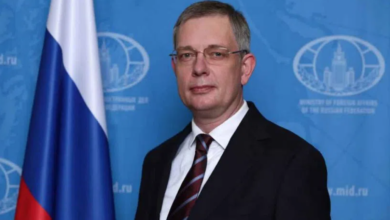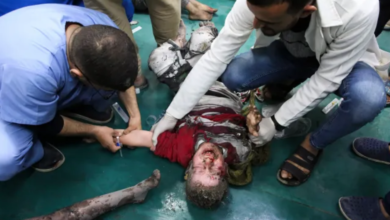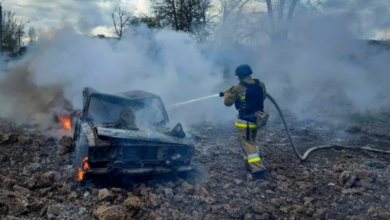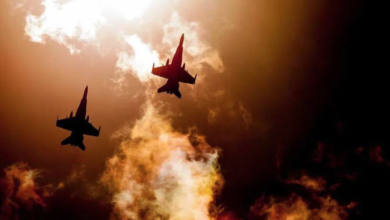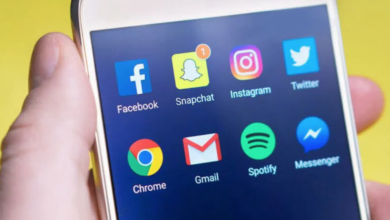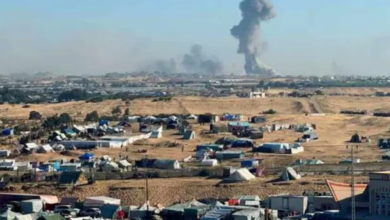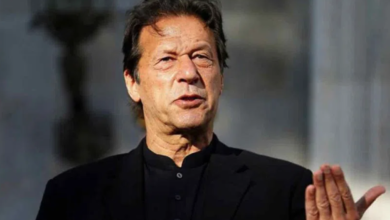China to send envoy to Ukraine to broker peace
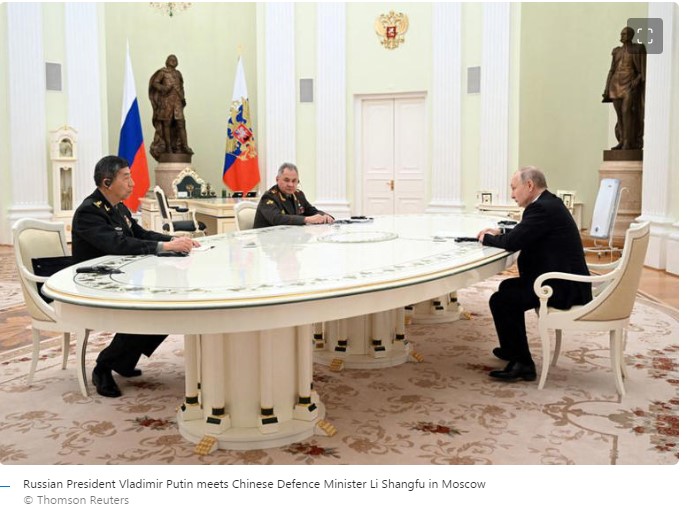
China said it would send an envoy to Ukraine to broker a “political settlement” to the war after Xi Jinping and Volodymyr Zelenksy spoke for the first time since the Russian invasion.
The Chinese and Ukrainian presidents spoke for nearly an hour in their first contact since Russia invaded two years ago.
Mr Zelensky said:
Ukraine has been seeking a formal call with Mr Xi since he visited Moscow last month in what some Western officials criticised as an endorsement of the invasion.
Mr Zelensky appointed Pavel Ryabikin, who previously headed the Ministry of Strategic Industries of Ukraine, as Kyiv’s new envoy to China. Ukraine has not had an ambassador to China since February 2021.
China said in a read-out that Mr Xi had “noted that the complex evolution of the Ukrainian crisis has had a significant impact on the international situation” during the call.
It said China would send Li Hui, its special envoy to Eurasia, “to Ukraine and other countries to have in-depth communication with all parties on political settlement of the Ukraine crisis”.
“As a permanent member of the UN Security Council and a responsible major country, we will neither sit idly by, nor pour oil on fire, still less seek to profit from it,” said Mr Xi, according to a Chinese read-out of the call.
“China has provided multiple batches of humanitarian assistance to Ukraine and will keep providing help to the best of its ability,” he added.
Later, Mr Zelensky added that “There can be no peace at the expense of territorial compromises” in a read-out of the call on Telegram.
Mr Zelensky stressed that peace could only be agreed on the “1991 borders”, meaning Ukraine taking full control of Crimea.
It was not clear how much weight China’s diplomatic gamble would carry.
Neither Kyiv nor Moscow has shown any willingness to meet the others’ minimum demands for talks to start. Most serious observers believe one or the other must win a decisive advantage on the battlefield before direct diplomacy could start.
Mr Li is a veteran but relatively low-profile diplomat who served as China’s ambassador to Moscow for 10 years until 2019. He has been Eurasia’s envoy for three years.
He is unlikely to have authority to negotiate and would probably be briefed to deliver a message from Beijing. rather than try to broker talks.
Vladimir Putin, Russia’s president, awarded him the country’s friendship medal – an award for people who have promoted Russia’s relations with foreign countries – when he left his post.
Analysts said China was unlikely to risk embarrassment by committing a more senior figure to the venture, because it was unlikely to succeed.
The United States welcomed the statement, but said it was too early to tell if it would result in progress towards peace.
“That’s a good thing,” John Kirby, the White House national security spokesman, said about the call.
“Now, whether that’s going to lead to some sort of meaningful peace movement, or plan, or proposal, I just don’t think we know that right now.”
Raffaello Pantucci, at the Royal United Services Institute (Rusi), said Mr Xi would have seen it was necessary to speak to Mr Zelensky after his Moscow visit, but that there was little new in the content of the call.
“The statement seems to reaffirm things the Chinese have said before, and these appointments of special envoys don’t often lead to that much,” he said.
“So it is a way of being seen to do something without doing that much or committing much.
“But I don’t think that means the Chinese want the war to go on. And the fact Xi was able to talk to Zelensky about mutual respect for territorial integrity says something.”
In February, China set out a 12-point peace plan calling for a ceasefire, but had no specific proposals on how to achieve it.
China has always professed neutrality over Russia’s war in Ukraine, but has refrained from condemning the invasion and remains Moscow’s closest and most powerful ally.
Mr Xi has spoken to Putin several times since the war began and in March made a state visit to Moscow.

